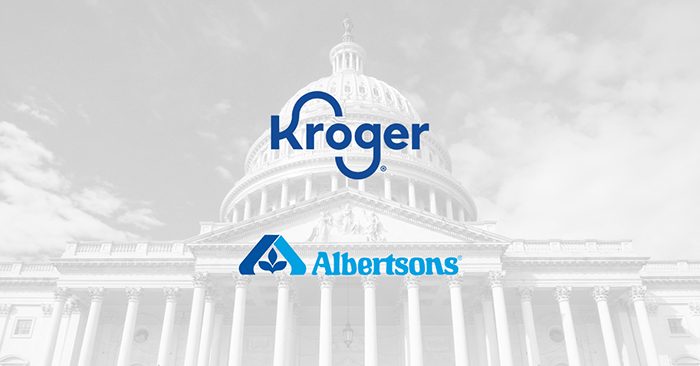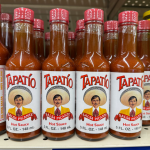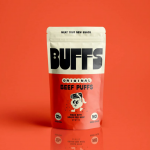Kroger/Albertsons: CEO’s Face Merger Opposition In Senate

The CEOs of Kroger and Albertsons Companies, Rodney McMullen and Vivek Sankaran, respectively, faced intense criticism from the Senate Judiciary Antitrust Subcommittee during a hearing yesterday regarding their plans to execute commitments outlined in the proposed merger agreement. McMullen specifically struggled to provide a clear defense to counter arguments regarding the potential, realized impact of the deal including Kroger’s claims that the merger will enhance marketplace competition, lead to price reductions for consumers and increase benefits for the companies’ combined workforce.
“Simply put, hearings like this one, provide an important opportunity for the American people to better understand an economic transaction over which they have little say, but which so intimately affects their lives and their livelihoods,” said Sen. Mike Lee (R-UT). “[It] also gives us a chance to review the adequacy of our laws protecting competition.”
Meeting for more than two hours, the committee offered little indication of support for the proposed deal with each congressman chipping away at the CEOs’ claims that combining the two largest supermarket chains would create more grocery competition. The hearing was led by Sen. Amy Klobuchar (D-MN) and the two CEOs were joined on the stand by witnesses including Sumit Sharma, senior researcher of tech competition at Consumer Reports; Andrew Sweeting, a professor of economics at the University of Maryland and former director of the bureau of economics at the Federal Trade Commission (FTC); and Micheal Needler, CEO of independent grocery chain Fresh Encounter.
Questions revealed a division between how the two opposing sides — Kroger and Albertsons, against the Senate Committee and its three witnesses — interpret the meaning of competition in this specific case.
From the retailer view, McMullen and Sankaran argued the deal will maintain Kroger’s position as the country’s fourth largest grocery retailer in dollar sales, while allowing them to better compete with their bigger rivals, such as Walmart and Costco. For Kroger and Albertsons the promise of “enhanced competition” translates to its ability to better compete for consumers against Walmart rather than cultivate competition in the market.
For the committee and witnesses, competition in this case is centered around the local and community impact, specifically a single store’s ability to compete for consumers on price against other food retailers in the vicinity. According to Sharma, 72% of consumers regularly buy groceries at a supermarket rather than a big box store like Costco. Additionally, Kroger’s 2021 Factbook notes that Albertsons is its main competitor in five of its top 10 markets and its primary competition in 14 of its 49 total markets. Sharma said this means if the two merge, Kroger would eliminate a substantial portion of local competition and diminish incentives to compete for consumers with lower prices.
During the hearing, McMullen failed to provide details concerning why he believes this deal will support the committee’s concept of competition, though he noted that Kroger has promised to invest $500 million in lowering prices for consumers starting “on day one.” This investment will likely be dispersed over four years if the deal closes. However, Sen. Lee noted these commitments are not legally binding and McMullen explained the Kroger team does not yet have an actionable roadmap for making good on their promise due to legal restrictions on data-sharing between the two companies pre-merger.
“Even if there are some efficiencies that are merger specific, these cost savings are unlikely to be passed on to consumers,” added Sharma. “Why would any of those savings be shared with consumers unless competition incentivizes companies to do so? These are, after all, profit-maximizing corporations.”
Members of the committee expressed skepticism throughout conversations regarding the potential need to divest stores in accordance with antitrust laws. With those questions, Albertsons’ $9 billion acquisition of Safeway in 2015 came under the microscope. When the company purchased Safeway and was required by the FTC to divest 168 stores, which went bankrupt in the subsequent nine months and were then repurchased by Albertsons at a discount. Sen. Lee referred to that deal as “an embarrassing failure,” and took the opportunity to highlight its connection to the current merger proposition.
“The FTC official, who had signed off on that divestiture, now runs the antitrust practice at the law firm representing Kroger and its purchase of Albertsons,” stated Lee. “Hollywood couldn’t write a more cynical plot not if it tried. Yet, the companies assure us that this is the merger that will make everything better.”
However, Kroger and Albertsons have said they do have a better plan which could potentially include a spinoff company, dubbed SpinCo, for divested stores that will be owned by Albertsons current shareholders and overseen by its board. While Sankaran noted that once divested, the company can not ensure the success of any store, he told the committee those stores would go to credible and qualified buyers, determined by the FTC. Albertsons is currently in talks with the FTC about the potential need to divest stores.
Needler provided the third-party retailer perspective during his testimony, which focused primarily on the lack of enforcement for guardrails, such as the Robinson Patman act, that are supposed to protect independent retailers like his from the “unrestrained” buying power of large corporations. He noted this buyer power allows large retailers to demand “special treatment,” and during a time of supply chain delays and food price inflation, this has included having orders fulfilled on-time and in full as well as privileged access to products and price advantages.
“We’re agnostic on the transaction, we are not afraid to compete against anyone, no matter how big, but what we do oppose is the lack of constraints on buyer power, which thwarts our ability to compete on price,” said Needler. “We must learn from the failure of Safeway and Albertsons, meaning that the FTC must use a microscope on a market by market basis, down to the street corner to ensure that the combination doesn’t harm consumers, or leave communities vulnerable. Divestitures should give capable local operators the chance to buy these divested assets.”
While the impact of marketplace competition was the focus of the majority of questions, the hearing also examined issues regarding how Kroger employees will benefit from the deal.
Kroger made a commitment to invest $1 billion to support employee salaries and benefits over a four year span as part of the merger agreement. Sankaran noted this merger would also create the largest private sector union employers in the country. But, both Sweeting and Sharma were quick to reaffirm that while these promises have been publicly announced by the companies, they are only expectations of what Kroger believes it will be able to do if the deal closes rather than binding parts of the agreement.
Sen. Lee also highlighted Kroger’s $1 billion stock buy-back deal last year that resulted in a payout to shareholders as another justification against the proposed merger. Lee said he does not believe the merger is necessary since both companies appear to have enough operating capital, as separate entities, to execute the plans outlined in the merger, like improving wages and benefits. According to Klobuchar, Kroger’s operating profits increased 25% between 2020 and 2021 from $2.8 billion to $3.5 billion.
“Inflation, to put it gently, is wreaking havoc on our entire economy,” said Lee. “But not in the grocery industry it appears. In fact, earlier this year, Kroger CEO Rodney McMullen, confessed that ‘a little bit of inflation is always good in our business.’ Well, it must have been very good this year, as Kroger has now amassed enough to spend $24.6 billion to buy up Albertsons.”
The two companies also claim no frontline workers would be laid off as a result of the agreement, however McMullen was unable to provide a clear cut response when asked if non-frontline workers, like administrative workers and corporate management teams, would be impacted by layoffs.
A day before the hearing, The United Food and Commercial Workers labor union, which represents nearly 100,000 Kroger and Albertsons employees, held a press conference on Capital Hill to share concerns over the potential loss of pension plans, job losses and higher food prices.
Committee member Sen. Hawley (R-MO) later questioned the two retailer’s belief that their complementary ESG commitments are a justification for the merger. According to Hawley, FTC chairman Lina Khan, recently testified in front of the same committee on a separate case, stating that ESG commitments are an “irrelevant” justification for a merger agreement. He then followed up by relaying an earlier line of questioning that aimed to derail Kroger’s claim that it values workplace diversity, a key tenet of its ESG commitments.
While the hearing covered a wide range of factors weighing on the proposed deal including the price reductions, the state of competition in both national and local grocery markets, data use and profits derived from consumer data-sharing, divestments and workforce diversity, the topic of Albertsons’ $4 billion dividend payment was largely absent from the proceedings. The hearing concluded with a return to the original issue at hand – how a merger of the two largest grocers will impact competition in the market.
“This discussion has gone beyond, in some good ways, [and] some bad ways, [from] where we started, but I think it’s really important that we keep our eye on what this is,” concluded Klobuchar. “Our concerns are more about how this market is structured in terms of what’s going to happen in the future. That’s why we have these agencies. That’s why we have to make sure we have all the facts when it comes to a highly concentrated situation, more and more with the grocery market, so that Mr. Needler can continue to compete… This is about individual markets.”

















